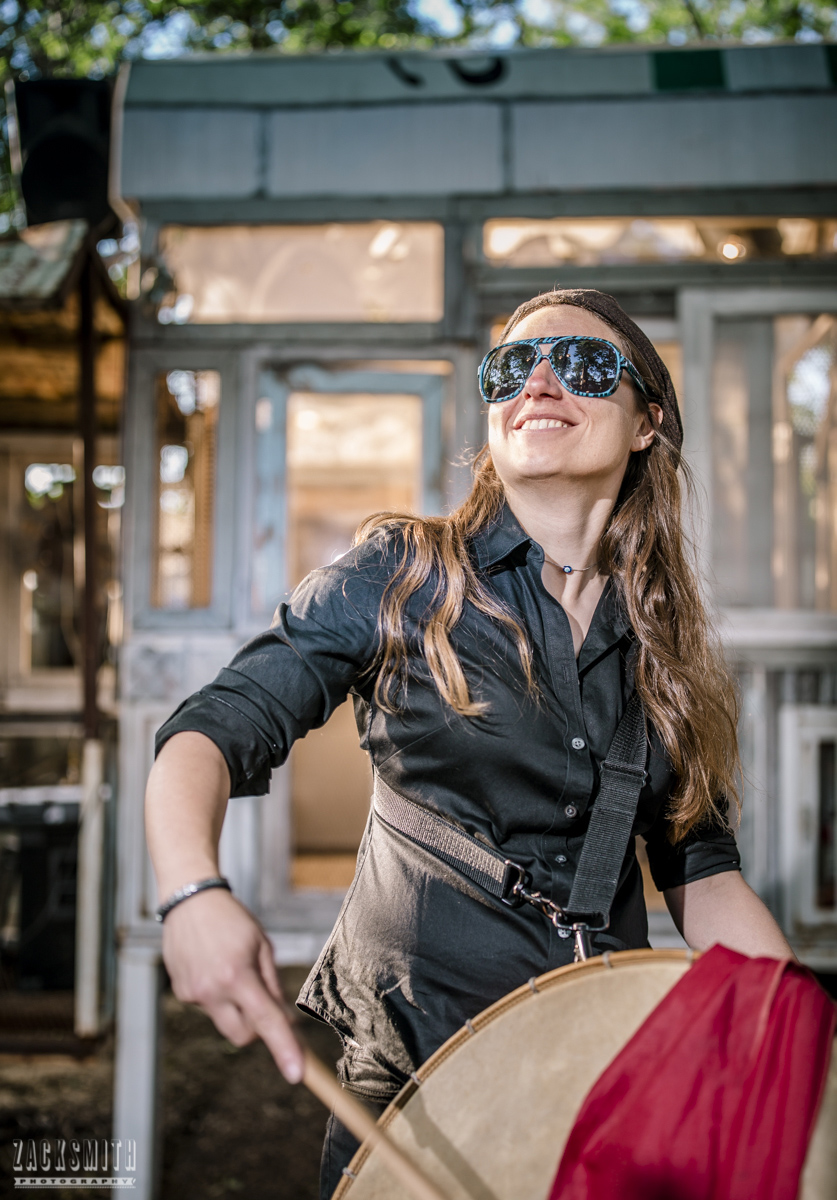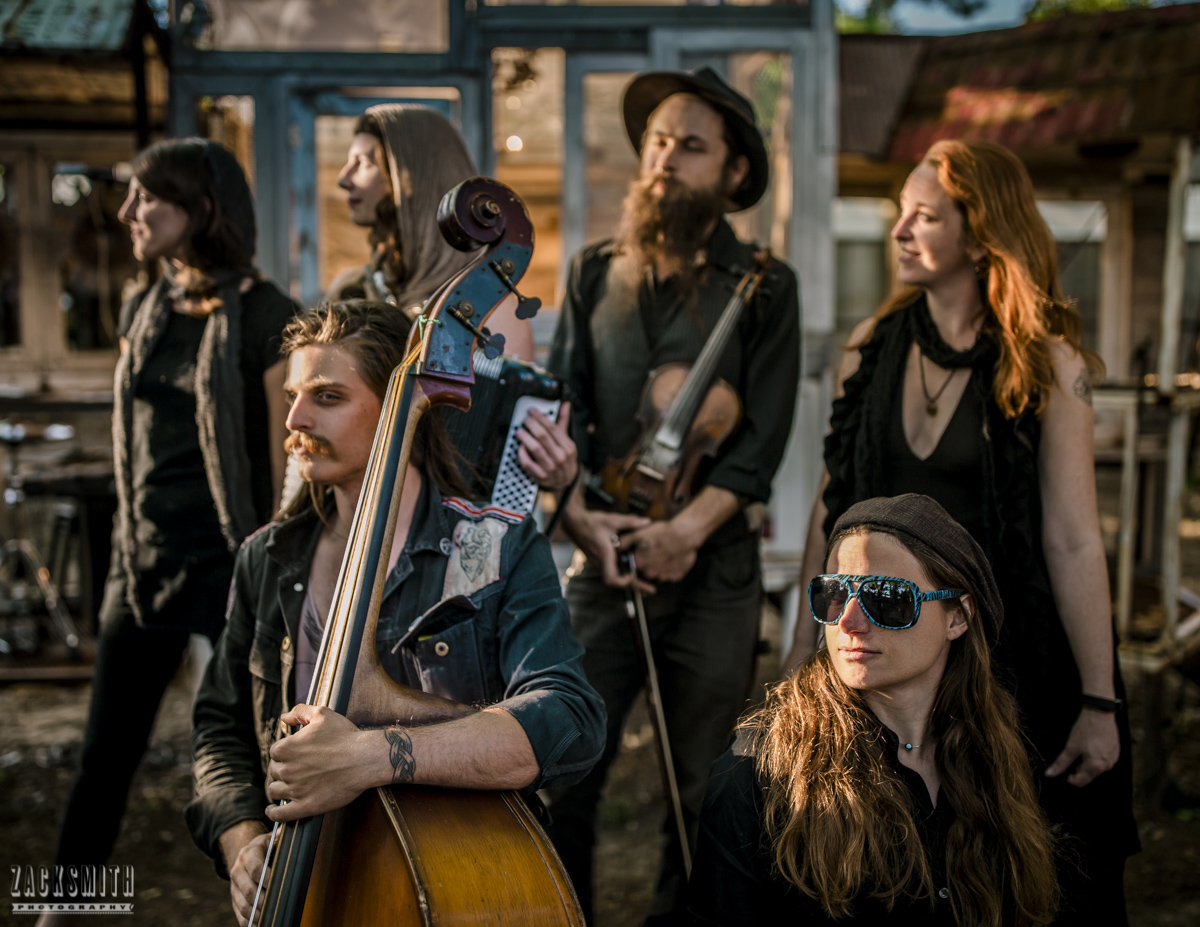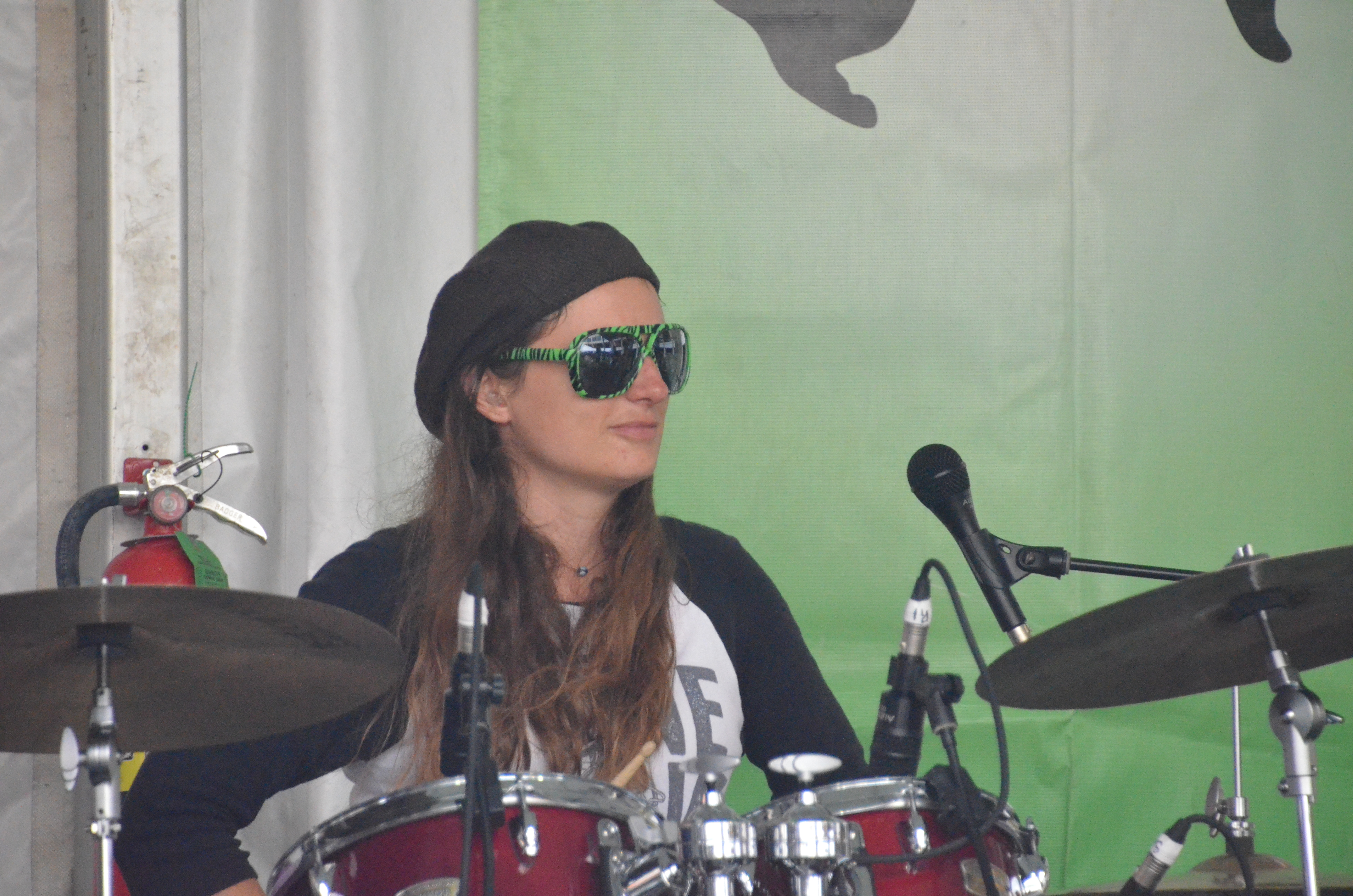The CASSANDRA Project
In ancient Greek mythology Cassandra was cursed by the god of reason and logic, Apollo, to always speak the truth and never be believed. She represents intuition, and her myth reflects western society’s devaluation of divine feminine knowledge.
The CASSANDRA Project is intended as a space for Cassandras in our community to speak their truth. It’s a space for female-identifying myth-busters to speak out and up for women, LGBTQ, and other marginalized peoples. While there are many columns and blogs that focus on women whose success is defined by the patriarchal values of wealth, power and prestige within the system, this column is dedicated to celebrating women for just being, a political act in and of itself in today’s world. It is a space to share the ways in which female-identifying people have maintained their relationship to the divine feminine forces of intuition and creativity outside the status quo, and in spite of male dominated industries and patriarchal systems.
This column is about, for and dedicated to all of the daughters of the witches you didn’t burn.
CASSANDRA #6 : Boyanna Trayanova

Boyanna Trayanova playing at the Music Box Village. (Photo: Zack Smith)
Boyanna Trayanova, born in Bulgaria, is a New Orleans percussionist. She plays in many bands including Blato Zlato who is recording their second full length album that features three original songs and arrangements of traditional Bulgarian music inspired by water. You can pre-order the album and help them put it on vinyl by supporting their Kickstarter before March 12th at https://www.kickstarter.com/projects/blatozlato/blato-zlatos-new-album-in-the-wake
Astrological sign: Scorpio
Favorite time of day: Nighttime
Natural habitat: The city
Most easily elicited emotion: Exuberant joy
Favorite potion: …it’s not a secret
What is your connection to your ancestry or a woman in your life whom you gained a lot of wisdom from? How do you continue that lineage?
My grandmother recently passed at 91. She was the central figure in my childhood because my parents were trying to get us out of Bulgaria.
She taught me to cook. I love cooking. She gave me her recipes, and I make them often.
Bulgarian food is like Greek and Turkish food since geographically it lies between. Yogurt on everything! We have something like Greek Spanakopita – a phyllo dough with feta and spinach. In Bulgaria we take out the spinach! It’s just butter, feta cheese, eggs and phyllo. It’s delicious!
What was your journey leaving Bulgaria and coming to the US?
My parents are scientists. My mom received a fellowship post-doc position at Duke University in 1986. Her father, my grandpa, was a Communist. He fought in early battles and was a member of the party. There were inner-party dictator cronies who were super wealthy – that wasn’t my grandpa! He was, however, a very good scientist and because he was a member of the Communist party he was allowed to travel when regular Bulgarians were not. Much of science is networking and collaborating with those doing similar research. Since there were not many in Bulgaria in his field he was allowed to travel and had connections all over the world. He did really good science.
My mother hated Communism with a passion, but she did the same kind of science as my grandpa. She studied electrical conduction in heart muscles. So once my grandpa passed away she used his connections to get a job at Duke University. This was 1986 when no one was allowed to go to America. It was unheard of. My mother wasn’t allowed to go either because she wasn’t a member of the Communist party, and she hated them. However, she joined because that is what she had to do to take the position. She paid dues that were large sums of her salary to the party. The Bulgarian KGB told her they were going to be watching and would put cameras in light bulbs. So she was very stressed and paranoid.
It was only a year long position, but she did a very good job, and Duke invited her back for something long term in 1988. Meanwhile my grandmother was raising me.
On top of her research, my mom was trying to get me and my dad out of Bulgaria. Duke wrote a US Senator who petitioned the Bulgarian government to let us out. Bulgaria flat out denied it, and my dad and I were stuck. Then in October of 1989 the Berlin wall came down, and there was a domino effect that trickled across the Soviet bloc down to Bulgaria. On Nov 10th 1989 – I remember it very clearly because my birthday is in November, and I had a combined birthday party with another kid – the Bulgarian dictator gave a speech and stepped down. All the adults were glued to the TV during our party. They couldn’t believe what was happening. I didn’t know what was going on, but the adults were freaking out.
Being on the other side of that thing was huge. I didn’t understand it as a kid, but the wall coming down meant I now had access to freedom.
Once the Bulgarian dictator stepped down it was chaos. Not anarchy chaos, but the government ran literally everything and overnight it didn’t. (Think the government shut down here times a hundred.) People were not getting paid. There were no private businesses. The government controlled food distribution. Everything. That is why there was so much hunger in the 90s. The entire system that was in place became obsolete.
In the meantime, however, no one was paying the border guards. My dad was a smart guy. He works for NASA now. So we just left.
My other grandpa had a car, which was rare. He was a surgeon so he had a little more means. Being a doctor there didn’t mean the same as it does here. Everyone was equally poor, but my grandpa had just a little bit extra and was able to have a car so he drove us out across the border. We drove into Yugoslavia and straight to Italy which was the nearest place you could catch a flight to the West.
We already had the paper work to leave because Duke had arranged it. The issue keeping us there had been that we couldn’t leave Bulgaria. Then the wall fell and all that changed overnight. We left and flew into New York. I remember landing and my Dad pointed out the Statue of Liberty. I didn’t know what it meant, but it stuck with me because we did find freedom.
What was it like to transition from Bulgaria to the US?
Immigration is rough. We came to America when I was 9. I did not go back to Bulgaria for 13 years because we had to wait that long for the right paperwork to be able to leave and return.
Both my grandmothers chose to stay in Bulgaria. My parents were in their 30s and it was hard, but my grandmothers were in their 50s. It is so difficult to pick up and leave everything you know. It was traumatic for everyone, myself included, but it was too much for my grandparents. They stayed back for some rough times. Those were the hungry years in Bulgaria. We would send non perishables like pasta. People were hungry.
I talked to my relatives on the phone, but I didn’t have personal contact, which is so important. Once I gained legal status I started returning because my grandmother had gotten old.
As a child I had to leave my friends and come to a new culture where everything was different. I did not speak any English. None. Also in Bulgaria head nods for “yes” and “no” are backwards. So you nod your head for “no” and shake your head for “yes.” Messing this up was very traumatizing. It’s deeper than verbal communication differences. Kids would offer me candy and I would shake my head “no” but mean “yes.”
What is a female archetype that you identify with and why?
Real young – like age 3, I picked up on the gender divide. I realized I was on the loosing side.
So I’ve always been a tomboy because I didn’t want to be perceived as weak. I’m not weaker. I’m a tomboy to give the middle finger to the patriarchy and this division of perceived weakness.
How is your body in contact with the world?
I feel the rhythm of the world. I’m very in tune to that. Not just rhythms but vibrations and frequencies.
How do you cultivate your relationship with your intuitive self? When has this been challenged by society?
I’ve learned to trust my intuitive side. I’m very in touch with it. I listen to that little voice that tells me things like ‘Red flag! Watch out! Don’t do it!’ Over the years I’ve learned to not ignore it or push it aside.
Society is constantly challenging it. People present themselves different than who they really are sometimes. That little voice warns me that this person may not be who they seem.
How do you practice self love?
I struggle with that because in this modern society that we live in I feel like that is not something that is valued.
It’s hard. I can be hyper critical of myself. I hate making mistakes.
Taking time for myself is a way to practice it. In today’s world everything happens all at once and we are all over-scheduled. It’s not just me. It’s everyone. My circle is musicians, and every musician I know is super busy. Occasionally though I interact with ‘normal people,’ and they are also over-scheduled. It’s hard to survive in 2019. Everyone has 15 jobs in the gig economy and is trying to hustle to make a living. It’s challenging to take time for yourself.
I’m not good at it. I’m very bad at saying no to things.
There was no room for self in Communism either because it was all about the greater good. The theory of Communism is great, but the practical application of it was a disaster.

Boyanna Trayanova and band. (Photo by: Zack Smith)
What is your feminist killjoy? The truth you speak up about that other people do not want to hear?
Everything. I’m the person who blurts out all the time. I say the thing that no one wants to say and no one wants to hear. If I’m thinking it, I’m going to say it.
I feel like I’ve always been this archetype, but over the years, society and people have done their best to keep me from blurting out. I rebel.
I was in an abusive relationship for a long time. This person beat my self confidence down to absolutely nothing. It was a process to recover from that and in the recovery I vowed to never put myself in a situation where I let someone else take advantage of me. It’s related to speaking out and up for things.
The bad situation brought up a greater desire to be authentic and not play around with politeness.
Not speaking up got me into that situation. Part of the recovery was doing away with being silenced. Nothing good happens from keeping it in.
So it was a turning point.
What is your best tactic for dealing with mansplaining?
I deal with it all the time.
I shut it down immediately.
Or I ignore it and walk away.

Boyanna Trayanova on drums. (Photo provided by: Boyanna Trayanova )
 NOLAbeings Multimedia artist Claire Bangser created NOLAbeings as a portrait-based story project that marries...
NOLAbeings Multimedia artist Claire Bangser created NOLAbeings as a portrait-based story project that marries...  Voodoo in New Orleans: Reviving history: New Orleans fortune telling This article takes a deep dive into the history of Voodoo in New Orleans, its hybridization with Catholicism, and its present-day place in the city's culture. The author visits fortune-tellers in the French Quarter, using their guidance as a tool for introspection rather than a deterministic predictor of the future. Through her experiences in New Orleans, the author feels a mystical connection to both the past and the future.
Voodoo in New Orleans: Reviving history: New Orleans fortune telling This article takes a deep dive into the history of Voodoo in New Orleans, its hybridization with Catholicism, and its present-day place in the city's culture. The author visits fortune-tellers in the French Quarter, using their guidance as a tool for introspection rather than a deterministic predictor of the future. Through her experiences in New Orleans, the author feels a mystical connection to both the past and the future. 
What a story you have to tell!